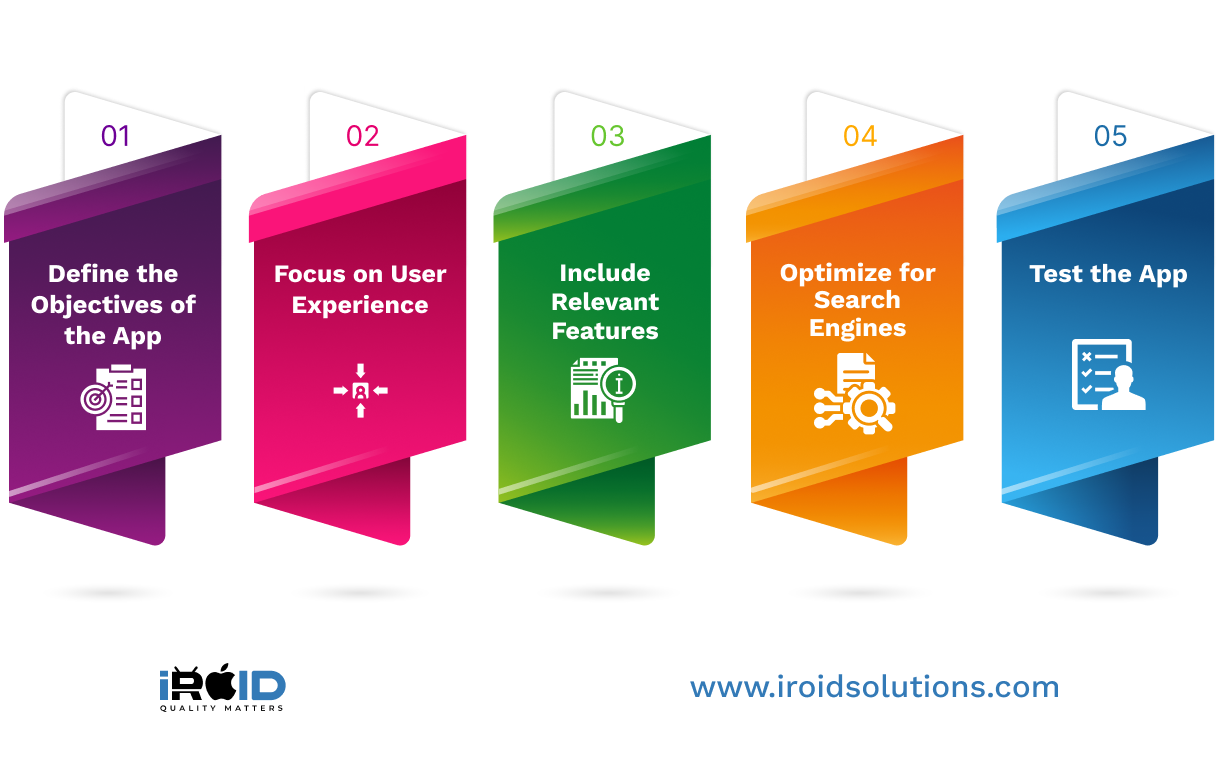The world of real estate has experienced a significant shift towards mobile applications in recent years. With the rising demand for mobile apps, real estate businesses have started to realize the potential benefits of having a mobile app to engage with their customers. A mobile app for real estate can provide users with all the information they need to buy, rent or sell a property. In this blog, we'll explore the best practices for developing a mobile app for the real estate industry.

1. Define the Objectives of the App
The first step in creating a successful mobile app for real estate is to define the objectives of the app. The app should be designed to meet the needs of both buyers and sellers, providing users with relevant information about properties, real estate agents, and other services. The app should be user-friendly and easy to navigate, with features that cater to the needs of the target audience.
2. Focus on User Experience
User experience is critical when it comes to mobile app development. The app should be designed to be intuitive and easy to use, with a clear and concise user interface. Users should be able to access the app quickly, and it should be optimized for mobile devices to ensure a smooth user experience.
3. Include Relevant Features
The features included in a mobile app for real estate should be relevant to the target audience. Some of the features that can be included in the app are:
-
Property search: This feature allows users to search for properties based on various parameters, such as location, price, and property type.
-
Property details: Users should be able to view property details, such as images, videos, and descriptions.
-
Agent finder: This feature helps users find a real estate agent who can assist them with buying or selling a property.
-
Mortgage calculator: This feature allows users to calculate mortgage payments based on the property price, down payment, and interest rate.
-
Contact form: Users should be able to contact real estate agents or property owners directly through the app.
4. Optimize for Search Engines
Search engine optimization (SEO) is essential for increasing the visibility of the mobile app in search engine results. Keywords should be incorporated into the app's content to improve its ranking in search results. App titles, descriptions, and other metadata should also be optimized for search engines.
5. Test the App
Before launching the mobile app, it's essential to test it thoroughly. Testing helps to identify any bugs or issues that may affect the app's performance. The app should be tested on various devices to ensure that it works correctly on different platforms.
Conclusion
Developing a mobile app for the real estate industry can provide numerous benefits for both buyers and sellers. The app should be designed to be user-friendly, with features that cater to the needs of the target audience. With a well-designed app, real estate businesses can increase their visibility and engage with their customers more effectively.
If you're looking to develop a mobile app for your real estate business, get in touch with us. We're a leading mobile app development company with years of experience in developing custom apps for businesses across different industries. Contact Us today to learn more about our mobile app development services.
Blog Related FAQs:
Recent Blog Posts
Get in Touch With Us
If you are looking for a solid partner for your projects, send us an email. We'd love to talk to you!














